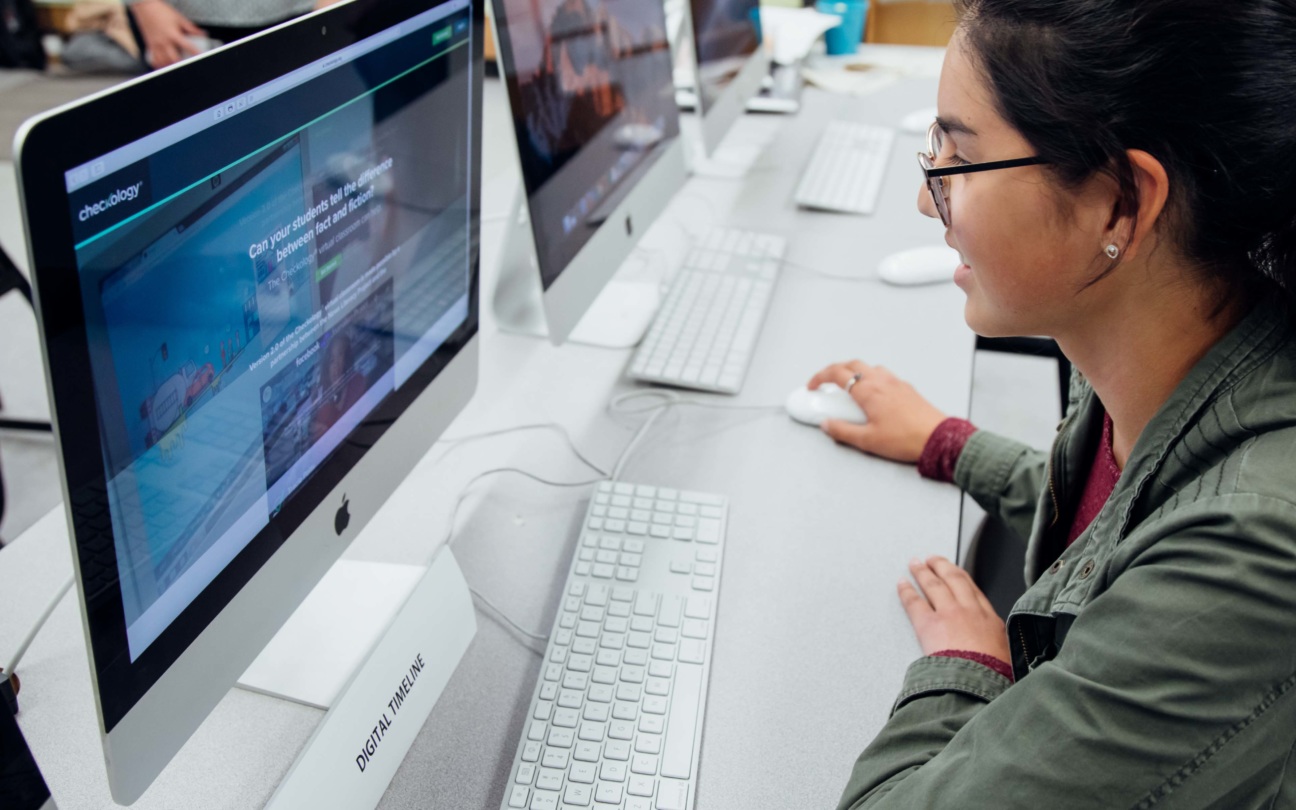
News literacy works: Proving the doubters wrong and preserving democracy
By Alan C. Miller and Peter Adams
We stand forewarned: If America is to reverse its slide toward becoming an information dystopia, we must not only accept the responsibility of knowing what news and other information to trust, but we must provide the next generation with the means to do so as well.
Yet since the field of news literacy emerged 14 years ago, critics have questioned both its intent and its effectiveness. Among their concerns: How could this approach be shown to work? Was it a stalking horse for legacy media? Would it be dismissed by conservatives as inherently biased?
How can education help prevent people from being drawn into conspiracy theories that sway adherents not with facts, but with appeals to our emotions, cognitive biases and innate need for community and purpose?
Finally, would it breed cynicism rather than healthy skepticism?
We believe we can effectively answer those questions, based on our work at the News Literacy Project.
After launching in middle schools and high schools in 2009, our education nonprofit has moved to national scale with our Checkology virtual classroom. Nearly 300,000 students in schools across the country have used the online platform since 2016.
Demonstrable impact: Robust assessment data collected during the 2020-21 school year and analyzed by independent evaluators shows that Checkology works. Surveys of thousands of students taken before and after completing lessons reflect significant increases in their understanding of news media bias and in their ability to recognize the standards of quality journalism and credible information. Students also demonstrated increased knowledge of First Amendment freedoms and the watchdog role of the press.
Educators who use Checkology tell us they see the impact as well.
“Equipped with the language to discuss the news and current events analytically, my students now rely less on their emotions, more on reason and evidence,” said Bradley Bethel, an English teacher in Graham, North Carolina. “They have developed a shared set of norms for determining truth.”
Independence: Various news organizations and journalists, including digital-first outlets, partner with us. But we are independent of them in our resources and programs. In fact, in our Checkology lessons, newsletters and other content, we point out shortcomings in news coverage and encourage students and the public to use news literacy skills to hold news organizations accountable when they fall short of their standards. This year, we are creating a new lesson that explores the roots of distrust in news, including journalism’s historic failure to be diverse and inclusive in its newsrooms and coverage.
Nonpartisanship: Checkology is being used by educators in every state in the country, and 50 districts have recommended it to their teachers. This includes the nation’s largest in strongly blue New York City, Los Angeles and Chicago as well as those in deep red states like Alabama, Missouri and Texas. This is made possible by NLP’s rigorous nonpartisanship that is reflected in the platform as well as in our board, funders and public voice.
Combating misinformation: We are working to help people see the exploitative nature of misinformation — the way it preys on our most sacred values and beliefs, using our desire for equity or our patriotism, to bypass our rational defenses and hijack our civic voices. We are also inoculating against the allure of conspiracy theories by helping people recognize the cognitive biases and flawed reasoning they deploy and the serious damage they inflict.
Skepticism, not cynicism: We work hard to help young people understand that even the most credible sources of information make mistakes — and that they are committed to correcting them. Credible journalism has a concern for the truth and strives to be as fair and transparent as possible. It is vitally important to empower young people — and everyone else — to recognize and respond to problematic news coverage. But it is equally important that we recognize the value and credibility of quality, standards-based journalism compared with the rest of what we encounter online. No source of information is perfect, but that doesn’t mean that all sources are created equal.
Our experience has shown us the power of equipping young people with the knowledge, skills and mindsets to successfully navigate today’s information environment and become engaged and informed participants in the civic life of their communities and the country. We owe it to them, and to ourselves, to do the same.
Democracy just may depend on it.
(Alan C. Miller is the founder and CEO of the News Literacy Project and Peter Adams is senior vice president for education.)